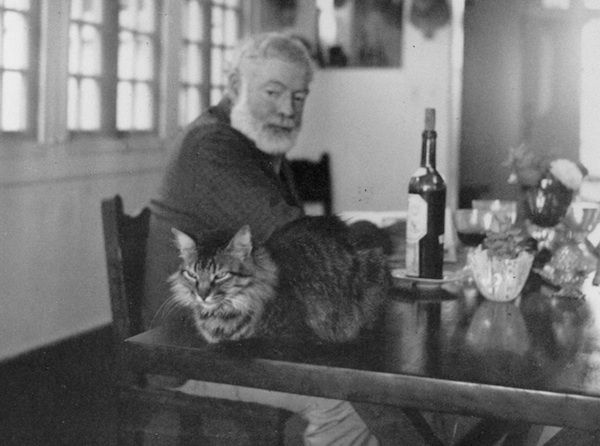On writing - Part I: On habits & finding the way to be yourself
Writing is a habit. I write every day. Habits are important to being a writer, everybody told me. And I have noticed this to be true. I especially like this lecture by one of my teachers, Avital Ronnell, on writing... in which she encouraged me to just sit, sit in front of that white screen, white piece of paper. Not do anything else, not be distracted, just to sit there.
Habits
Habits are useful. They are the cup of coffee, the favorite blanket, the websites you read, the little dance you do before you start. It's having a clean or a messy place, it's about feeling at ease in your own space. Or in a public space (writing in a cafe has been very helpful, as long as you find the right place for you. There is no magic formula, there is only your magic formula. Figure it out, and find yourself writing.
On writing in Public Spaces
Maybe a note on the idea of writing in public spaces. I really liked writing in the State Library in Berlin (Germany) where i wrote most of my dissertation in contemporary philosophy. It's a beautiful space, modern, mainly one huge hall with lots of books and different levels of floors with a LOT of desks for people to plug in their laptop and read and write. There is absolute silence. There are no tourists or children, you need to pay a fee to enter / become a member. It is an amazing place, with a lot of light and air and silence. It works well. I haven't found any equivalent ever since.


Do you see those desks there?! Source: website of Statsbibliothek Berlin, Potsdamerplatz.
If you do write somewhere outside of your own home, I've found these to be deciding factors: temperature, noise level (I like either complete silence or good background noise of voices/music), music (should never be loud) and availability of coffee. And most of all: to be left alone (so no waiters asking you if you want something).
Be yourself
No matter what you write, fiction or non-fiction, make sure you feel comfortable with yourself. This doesn't mean you have to feel perfect or happy or have a great mood. It has more to do with safety. Feeling safe in your own cocoon. That first draft - nobody cares, nobody will read it, so don't worry about it. Just write it down. The editing (will come to that in a later part) will come later, is of no concern now!
This is how you should take the advice that has been misappropriated to Hemingway... "Write drunk, edit sober". Just like Hemingway, I never write drunk, I don't think I could. But the idea behind it is still true. Don't care about other people when you write. Writing that first draft is your way to get your thoughts in order, to get ideas, to get to the point you're actually making. Sometimes it takes a lot of first drafts. That is okay, they all count.

Ernest Hemingway Collection. John F. Kennedy Presidential Library and Museum, Boston.
Count your words
This is maybe one of the most important things, for me. To keep track of yourself. Don't overdo it. Knowing what works for you, includes knowing your limits. I've found that if I write an extreme lot one day, I won't be able to write much or anything the days after. There is a delicate balance you need to find. And counting the amount of words you write is a good way to keep track. To push yourself AND to limit yourself. It's good to have an aim that works, that you can count on. For me, it's about 1250 words per day. This is after many years of writing and working on my habit and endurance. I started out with 250 words per day.
And it's up to you what you count, what words count. I don't count blogging. I merely count the words I write for the specific bigger project I'm working on. But this is all up to you. Everything is up to you. But maybe this habit will help you as much as it has and is still helping me.
Enjoy writing, and am looking forward to hearing what your think about this, and to hear your experiences!
About Nobyeni:
A SF-writing, freelance philosopher, whose first (non-fiction) book is to appear in March 2018. She writes in Dutch and English, fiction and non-fiction. She teaches writing at an art academy in the Netherlands.
I noticed there are a lot of (aspiring) writers on Steemit, so I thought I'd share my insights I've gathered over the years. Stay tuned for Part II on using structure!!
Just sitting down and giving yourself permission to stare at the wall is so important. Make your mind a vacuum and it starts sucking things in.
The right kind of library can make a big difference, too. My wife loves the London Library when she's over there, and I was quite fond of the Boston Public Library reading room.
Ow, yes, that looks like a perfect place! That combination of old ceilings & lines of book, with light added in... Thanks for sharing, will start to compile a list :)